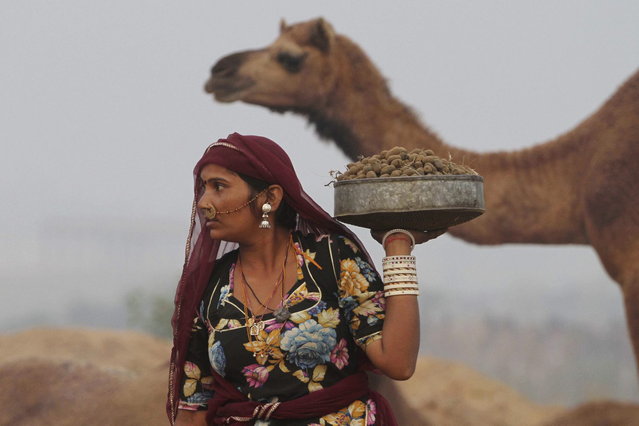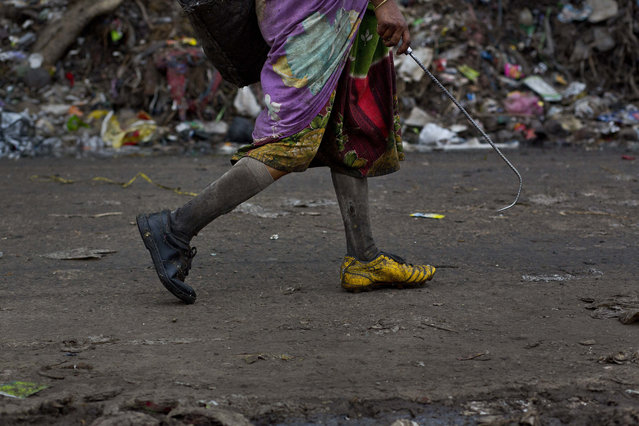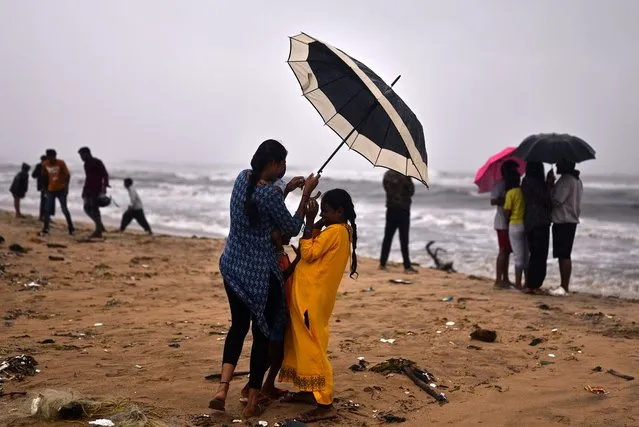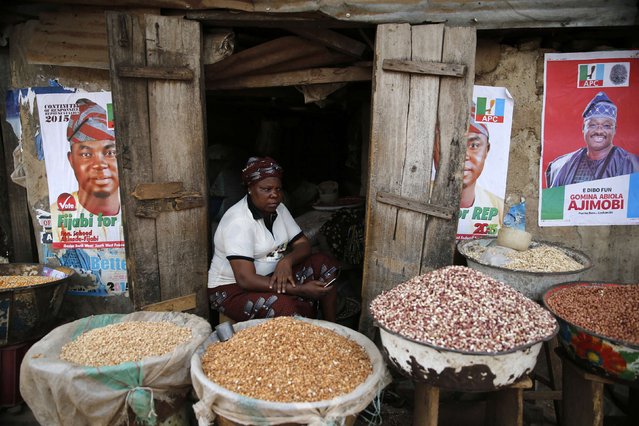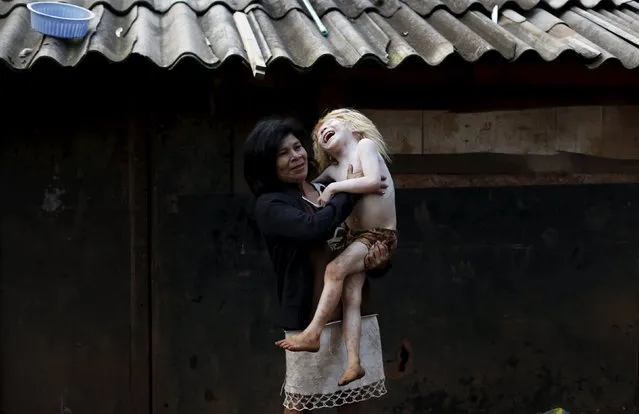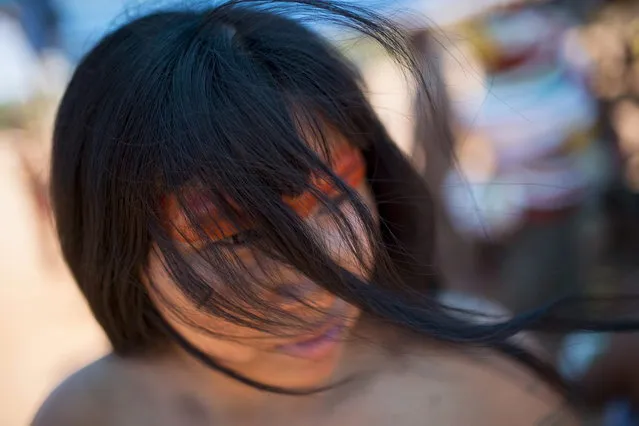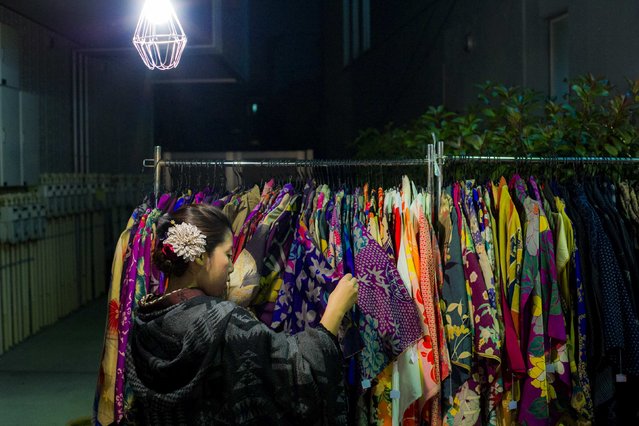
An Indian worker paints the hand of a huge clay model of a tribal woman on the Indian state of Karnataka's tableau for Republic Day parade, in New Delhi, India, Friday, January 22, 2016. Security has been tightened around the Indian capital as well as across the country ahead of Republic Day celebrations, held each year on Jan. 26. (Photo by Manish Swarup/AP Photo)
24 Jan 2016 15:33:00,post received
0 comments

